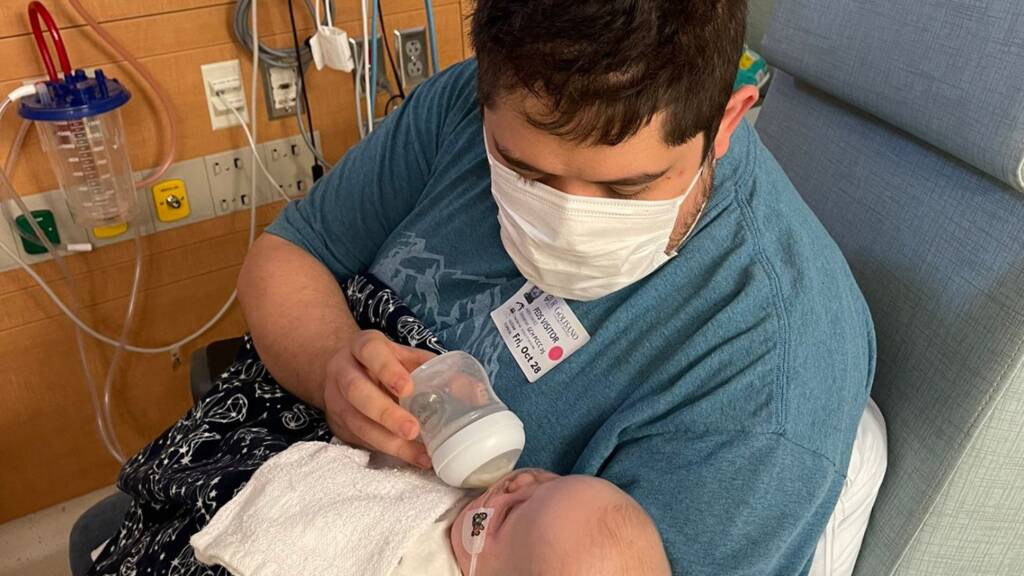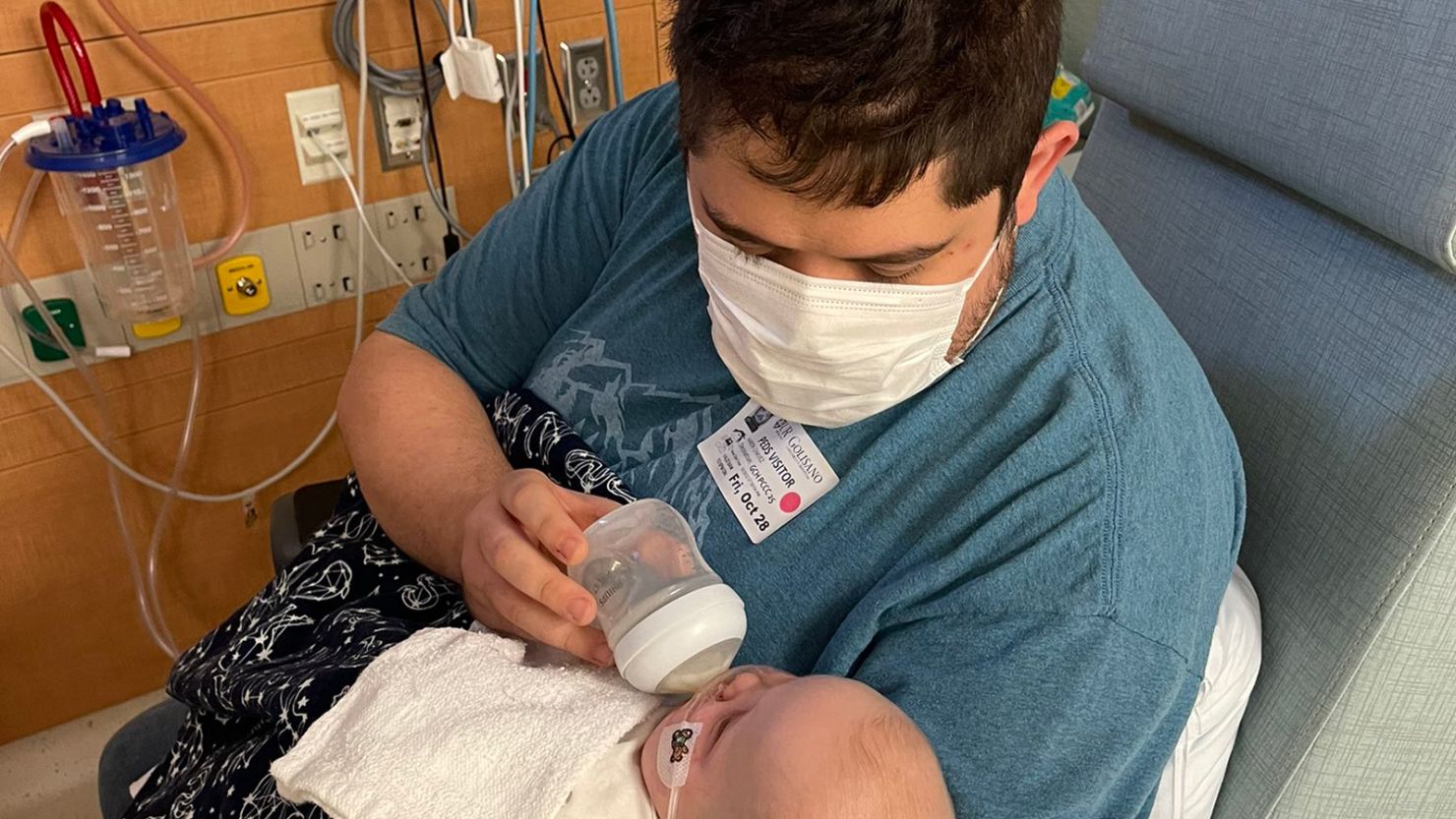Understanding the Need for Surgery
Surgery can be a daunting prospect, especially when it involves your baby. However, it’s often a necessary intervention to address health issues that, if left untreated, could lead to more serious complications. Common reasons for infant surgery include congenital anomalies, infections, and conditions like hernias or heart defects. Early intervention can be crucial for your baby’s long-term health and development. Understanding the necessity and potential benefits of the surgery can help in coping with the process.
Preparing Emotionally and Mentally
As a parent, it’s natural to feel anxious about your baby’s surgery. Preparing emotionally and mentally is essential for both you and your baby. Educating yourself about the procedure, understanding the risks and benefits, and knowing what to expect can alleviate some of your anxiety. Open communication with your family and medical team, along with seeking support from friends or a counselor, can also help you manage your emotions. Preparing your family for the surgery by discussing what will happen and how everyone can support the baby can create a more supportive environment.

Pre-Surgery Preparation
Choosing the Right Medical Team
Selecting a skilled and experienced pediatric surgeon is one of the most important steps. Researching the surgeon’s credentials, seeking recommendations, and consulting with other parents who have gone through similar experiences can provide valuable insights. Equally important is ensuring that the medical team, including anesthesiologists and nurses, is supportive and specializes in pediatric care. A cohesive and experienced team can significantly impact the surgery’s success and your baby’s recovery.
Pre-Surgery Consultations
Pre-surgery consultations with the surgeon and medical team are crucial. These meetings allow you to ask questions, understand the surgical procedure, and address any concerns. Key questions to ask include the specifics of the procedure, the expected recovery timeline, potential risks, and how you can prepare your baby for surgery. These consultations are also an opportunity to discuss any special needs your baby might have and ensure that all necessary preparations are made.
Medical Tests and Evaluations
Before surgery, your baby will undergo several medical tests to ensure they are fit for the procedure. These tests may include blood tests, imaging studies, and physical examinations. The purpose is to assess your baby’s overall health and identify any potential risks. It’s essential to follow all pre-surgery instructions and ensure that your baby completes these evaluations. Keeping track of test results and understanding what they mean can help you stay informed and involved in your baby’s care.
Fasting and Medication Guidelines
Adhering to fasting and medication guidelines is critical for a safe surgery. The medical team will provide specific instructions on when to stop feeding your baby before the surgery, typically a few hours before the procedure. This is to ensure that the baby’s stomach is empty to prevent complications during anesthesia. Additionally, you will receive guidelines on managing any regular medications your baby might be taking. It’s important to follow these instructions precisely and communicate with the medical team about any concerns or questions.
Preparing at Home
Creating a comfortable and supportive environment at home can aid in your baby’s recovery. Prepare a recovery space with all necessary supplies, such as diapers, wipes, and any prescribed medications. Pack a hospital bag with essentials for both you and your baby, including comfortable clothes, favorite toys or blankets, and personal hygiene items. Ensuring that you have everything you need can help reduce stress and make the hospital stay more manageable.
The Day of Surgery
Hospital Check-In Process
The hospital check-in process can be overwhelming, but understanding what to expect can ease some of the stress. Arrive at the hospital early to allow plenty of time for check-in procedures, which may include paperwork, health checks, and meeting with the medical team. Bring all necessary documents, such as your baby’s medical records and insurance information. Keeping calm and organized during this process can help ensure a smooth experience for you and your baby.
Pre-Surgery Preparations at the Hospital
Once checked in, the hospital staff will prepare your baby for surgery. This may include changing into surgical attire, administering pre-surgery medications, and performing final health checks. Keeping your baby calm during this time is important. Bringing along a favorite toy or blanket can provide comfort and familiarity. The medical team will also go over the procedure again and answer any last-minute questions you might have.
Parental Presence and Support
Your presence and support are crucial for your baby during this time. Stay calm and composed, as your baby can pick up on your emotions. Holding, talking to, and comforting your baby can provide reassurance. Some hospitals allow parents to stay with their child until they are taken into the operating room. If this is an option, take advantage of it to provide as much support as possible.
During Surgery
Understanding the Surgical Procedure
Knowing the details of the surgical procedure can help you feel more in control and less anxious. The surgeon will provide a step-by-step explanation of what will happen during the surgery, including the duration and the expected outcomes. Understanding the process can help you prepare mentally and emotionally, and allow you to explain the procedure to any concerned family members.
Communication with the Medical Team
Maintaining communication with the medical team during the surgery is essential. The team will keep you updated on the progress and any developments. Make sure you know where to wait and how you will receive updates. This communication helps alleviate anxiety and ensures that you are informed throughout the procedure.
Emotional Support for Parents
The period during the surgery can be particularly stressful for parents. Employ coping strategies such as deep breathing, meditation, or talking with a supportive friend or family member. Some hospitals have support groups or counselors available to help parents during this time. Utilizing these resources can provide emotional support and help you manage your stress.
Post-Surgery Care
Immediate Post-Surgery Recovery
Once the surgery is complete, your baby will be moved to a recovery room. Here, the medical team will monitor your baby’s vital signs and ensure they are waking up safely from anesthesia. It’s normal for babies to be groggy and disoriented after surgery. Being present to comfort and hold your baby can provide reassurance during this recovery phase. The medical team will give you specific instructions for immediate post-surgery care.
Pain Management
Managing your baby’s pain effectively is crucial for a smooth recovery. The medical team will prescribe pain medications and provide guidelines on how to administer them safely. It’s important to follow these instructions precisely and monitor your baby for any signs of discomfort or adverse reactions. Non-pharmacological methods, such as holding, rocking, and providing a soothing environment, can also help manage pain.
Monitoring for Complications
After surgery, it’s essential to watch for any signs of complications. These can include excessive bleeding, infection at the surgical site, fever, or unusual behavior changes in your baby. The medical team will provide a list of symptoms to watch for and instructions on when to contact them. Promptly addressing any concerns can prevent complications from becoming serious.
Feeding and Nutrition Post-Surgery
Resuming feeding after surgery is an important part of recovery. The medical team will provide guidelines on when and how to start feeding your baby again. Initially, you may need to offer small amounts of clear liquids before gradually reintroducing regular feedings. Ensuring that your baby receives proper nutrition during recovery can support healing and overall well-being.
Long-Term Recovery
Follow-Up Appointments
Regular follow-up appointments are crucial to monitor your baby’s recovery and address any ongoing concerns. These visits allow the medical team to assess the healing process, remove stitches if necessary, and ensure there are no complications. Keeping these appointments and following the medical team’s recommendations is essential for your baby’s long-term health.
Physical Activity and Rehabilitation
Gradually reintroducing physical activities is important for your baby’s recovery. The medical team will provide guidelines on when and how to resume normal activities. In some cases, physical therapy may be recommended to support recovery and enhance your baby’s motor skills. Following these guidelines can help your baby regain strength and mobility.
Emotional and Psychological Support
Surgery can be a traumatic experience for both babies and parents. Addressing emotional and psychological needs is crucial for recovery. Providing a loving and supportive environment, encouraging open communication, and seeking professional help if needed can support your baby’s emotional well-being. Additionally, parents should be mindful of their own mental health and seek support if needed.
Parental Self-Care
Caring for a baby after surgery can be physically and emotionally draining. It’s important for parents to prioritize self-care to maintain their own health and well-being. Taking breaks, seeking support from friends and family, and engaging in activities that promote relaxation and stress relief can help parents stay resilient during the recovery process.
Special Considerations
Managing Chronic Conditions
If your baby has a chronic condition, managing their health during and after surgery requires special considerations. Communicate with the medical team about your baby’s specific needs and develop a tailored care plan. Monitoring your baby’s condition closely and ensuring that all aspects of their health are addressed can support a smooth recovery.
Handling Multiple Surgeries
In some cases, babies may require multiple surgeries. Preparing for and managing multiple procedures involves careful planning and coordination with the medical team. Developing a comprehensive care plan, ensuring consistent follow-up, and providing ongoing support for your baby can help manage the challenges associated with multiple surgeries.
Cultural and Religious Considerations
Respecting cultural and religious beliefs during medical care is important. Discuss any specific cultural or religious practices with the medical team to ensure they are incorporated into the care plan. This can include dietary restrictions, prayer rituals, or other practices that are important to your family. Ensuring that these considerations are respected can provide comfort and support during the surgical process.

Resources and Support
Educational Materials
Accessing educational materials can help you stay informed and prepared. Recommended resources include books and articles on pediatric surgery, online guides, and educational videos. Staying informed about the surgery and recovery process can help you provide the best possible care for your baby.
Support Groups and Communities
Joining support groups and communities can provide valuable resources and emotional support. Connecting with other parents who have gone through similar experiences can offer insights, encouragement, and practical tips. Local and online support groups can be a lifeline during this challenging time.
Professional Help and Counseling
Professional help and counseling can be beneficial for both parents and babies. Accessing counseling services can provide emotional support and help address any psychological challenges associated with the surgery. Seeking professional help when needed can support the overall well-being of the entire family.










